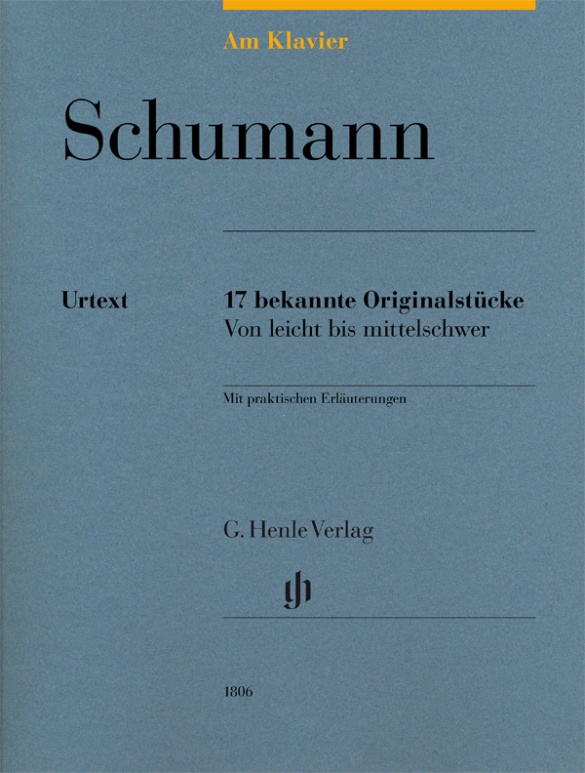

Robert Schumann
Am Klavier - 17 bekannte Originalstücke
Content/Details
(Explanation)
About the Composer
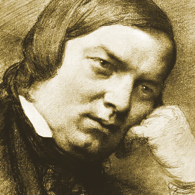
Robert Schumann
Connected with his oeuvre is the term he coined, Poetic Music, with which he strove for a fusion of literature and music, a paradigm particularly seen in his lyric piano pieces prior to 1839. Thereafter he devoted himself to other genres (song, symphony, chamber music, among others).
| 1810 | Born in Zwickau on June 8, the son of a bookdealer. |
| from 1828 | Studies law in Leipzig, piano with Friedrich Wieck. Decision to pursue a career in music. |
| 1830–39 | He exclusively composes piano works, mostly cycles, including “Papillons,” Op. 2 (1829–32); “Carnaval,” Op 9 (1834/35); “Davidsbündlertänze,” Op. 6 (1837); “Kinderszenen” (“Scenes from Childhood”), Op. 15 (1837/38); “Kreisleriana,” Op. 16 (1838); “Noveletten,” Op. 21 (1838). |
| 1832 | A paralysis of a finger in his right hand makes a career as a pianist impossible. Founding in 1833 of the fantasy brotherhood the “Davidsbund” (“League of David”). |
| 1835–44 | Editor of the Neue Zeitschrift für Musik (New Journal of Music). |
| 1840 | Marriage to Clara Wieck; 138 songs, including the Eichendorff Liederkreis, Op. 39; the song cycle “Dichterliebe,” Op. 48 |
| 1841 | Symphony No. 1 in B-flat major (“Spring” Symphony), Op. 38, and Symphony No. 4 in D minor, Op. 120. |
| 1842 | Three string quartets, Op. 41; further chamber music. |
| 1843 | Teacher of composition at the Leipzig Conservatory. Oratorio “Paradise and the Peri,” Op. 50. |
| 1845 | He settles in Dresden. Journey to Russia. |
| 1845 | Piano Concerto in A minor, Op. 54, Symphony No. 2 in C major, Op. 61. |
| 1850 | City music director in Düsseldorf. Premiere in Leipzig of his opera “Genoveva,” Op. 81. Symphony in E-flat major (“Rhenish”), Op. 97; Cello Concerto in A minor, Op. 129. |
| 1853 | Beginning of his friendship with Brahms. Completion of the Scenes from Faust. Violin Concerto in D minor for Joseph Joachim. |
| 1854 | Suicide attempt and admission to the psychiatric institution in Endenich, near Bonn. |
| 1856 | Death in Endenich on July 29. |
About the Authors
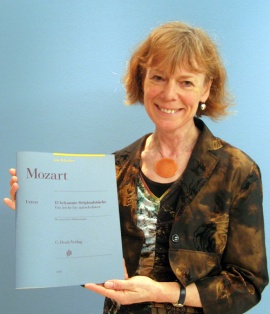
Sylvia Hewig-Tröscher (Editor, Fingering)
Sylvia Hewig-Tröscher studied piano at the Hochschule für Musik in Munich under Erik Then-Bergh and Hermann Reutter, as well as under Louis Hiltbrand at the Conservatoire de Musique in Geneva. 1977 she finished the „ Classe de Virtuosité“ in Geneva with the Premier Prix avec distinction and received the Henry Broliet prize as well as being awarded the GEDOK prize. Also organ studies under Lionel Rogg finishing with the „Diplome d’Orgue“. Masterclasses with George Halmos, Klaus Schilde, Karl Seemann and Wilhelm Kempff, followed, as well as with the cembalo player Li StadelmannIn. 1977 the piano trio Orfeo was established.
Since then, as a solo pianist and chamber musician, her concert activities have led her to Germany, Switzerland, France, Italy, Austria, America, Egypt, India, Korea, and Japan. The list of recordings includes Bayerischer Rundfunk and Südwestfunk Freiburg, Baden-Baden, record and CD recordings of (among others) seldom played works of the classical and romantic periods with Musica Bavarica. Further CD recordings including modern music and first performances with Calig, Symicon, Bayer Records, Arts Magnamedia, and Sony, also co-production of the Bayreischer Rundfunk and Deutscher Musikrat.
Masterclasses in Villa Marteau, Marktoberdorf, Hammelburg, Brixen, Castelnuovo di Garfagnana and New York. Today Sylvia Hewig-Tröscher works as a professor of piano and vice president of the Hochschule für Musik and Theater Munich.
Product Safety Informations (GPSR)

G. Henle Verlag
Here you can find the information about the manufacturer of the product.G. Henle Verlag e.K.
Forstenrieder Allee 122
81476 München
Germany
info@henle.de
www.henle.com
Wer nach langer Pause wieder Klavierspielen möchte oder wer gerade erst damit begonnen hat und nun leichtere Originalwerke von bedeutenden Komponisten sucht, ist mit diesem Heft aus der renommierten Urtext-Reihe des Henle-Verlags gut beraten. Das neue Am Klavier genannte Format bietet alles, was man zum einfachen Wiederaufnehmen des Klavierspiels benötigt. Schüler, Lehrer und Wiedereinsteiger finden hier eine Fülle bekannter Werke, die von leicht bis mittelschwer sortiert und in der gewohnt hervorragenden Ausstattung vorgelegt werden.
Correspondenz, 2017Die Texte Hewig-Tröschers sind leicht lesbar, allgemein verständlich und in ihren praktischen Empfehlungen problemlos umzusetzen, etwa wenn sie mit wenigen Worten Empfehlungen gibt, wie eine Oberstimme bei Mehrstimmigkeit in einer Hand hervorgehoben werden kann. Auch der Klavierpädagoge liest die Anmerkungen der Herausgeberin durchaus mit Gewinn für den eigenen Unterricht.
Üben & Musizieren, 2016De serie houdt rekening met verschillende spelniveaus (...), uithoudingsvermogen (...) en wil twijfelaars niet afschrikken door een te groot gewicht van een volume (...) of een te druk tekstbeeld. Ook aan de portemonnee van de doelgroep is gedacht, want de serie is aantrekkelijk geprijsd. Kortom, alle voorwaarden zijn aanwezig, alle mogelijke duwtjes in de rug gegeven, nu is het de beurt aan de pianist zelf. Er is geen uitstel meer mogelijk.
Piano Bulletin, 2015推荐
autogenerated_cross_selling
本书目其他版本
本书目其他版本


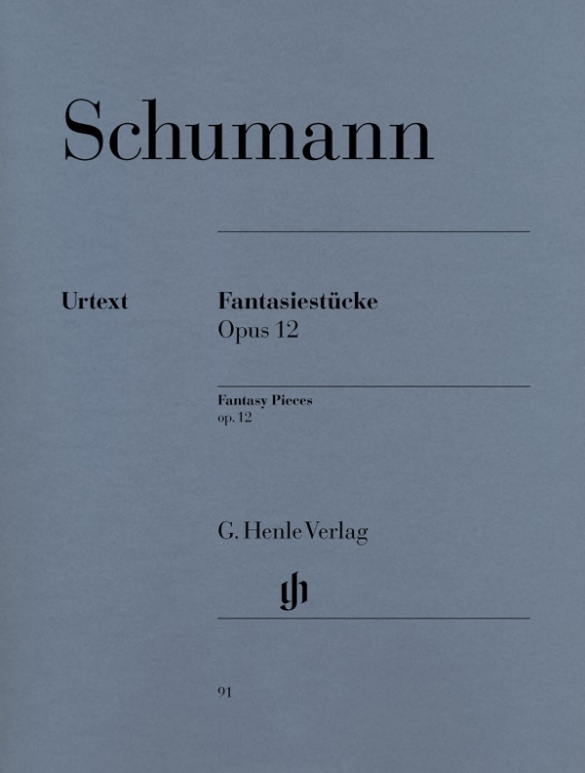

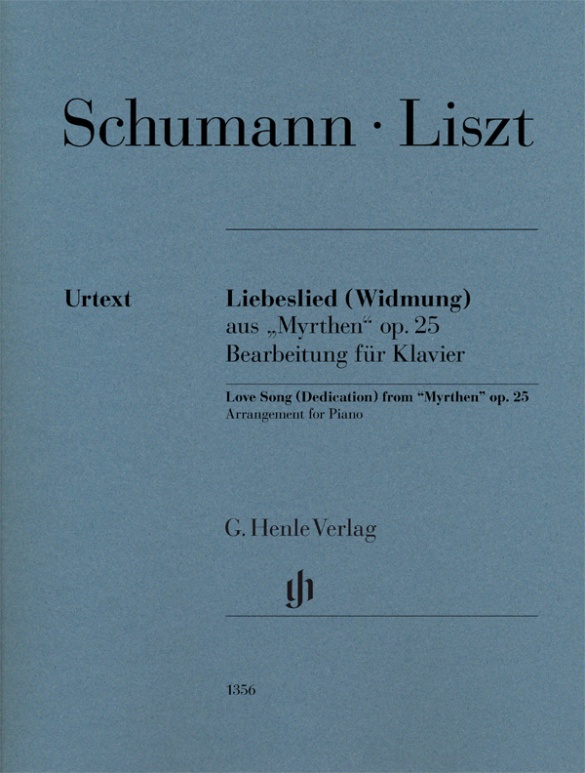
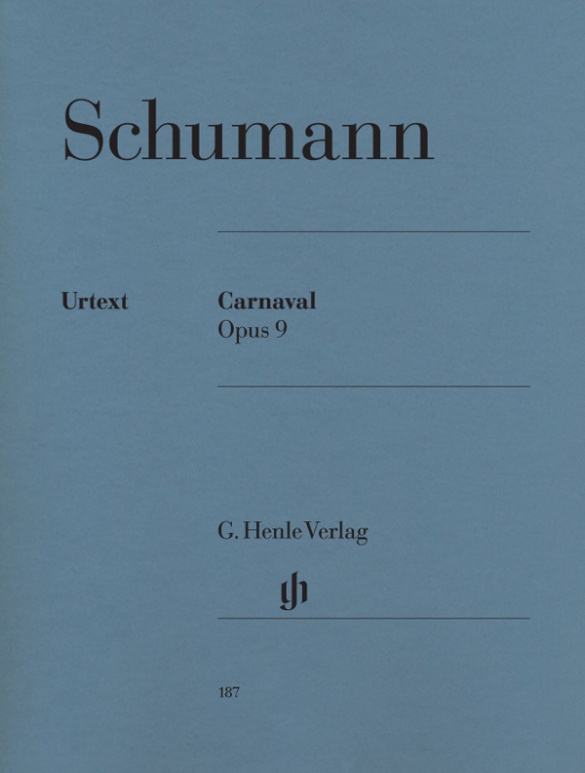
not available in the USA